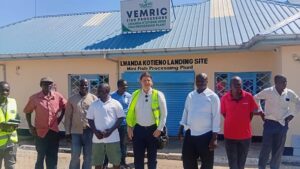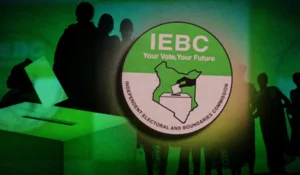EPRA Exposes Fuel Fraud: 17 Stations Caught Selling Adulterated Gasoline as Compliance Soars!
the regulator identified 17 stations, representing 1.29% of the total inspected, as non-compliant due to the sale of adulterated fuel or failure to meet prescribed standards.

An attendant refuels a vehicle at a petrol station. Photo by Pulse Kenya
By Robert Mutasi
The Energy and Petroleum Regulatory Authority (EPRA) has announced that a significant majority of petroleum stations in Kenya have successfully met the required fuel quality standards.
According to a quarterly monitoring report for the period of July to September 2024, EPRA found that 98.71% of the inspected petroleum sites complied with the established regulations. The report detailed that 5,854 tests were conducted across 1,321 stations during this timeframe, with 1,304 sites deemed fully compliant, ensuring that motorists receive high-quality petroleum products.
However, the regulator identified 17 stations, representing 1.29% of the total inspected, as non-compliant due to the sale of adulterated fuel or failure to meet prescribed standards. While the names of these stations have not been disclosed, EPRA indicated that it would take necessary actions against them, which may include fines, closure of the facilities, or revocation of their operating licenses.
“The Authority undertakes a program of continuous monitoring of the quality of petroleum motor fuels on sale, transport, and storage throughout the country,” EPRA stated. This routine monitoring aims to protect consumers from low-quality fuel products that could harm motor engines and contribute to environmental pollution.
EPRA reaffirmed its commitment to ensuring that fuel sold across Kenya adheres to international quality standards. The authority conducts random tests at various stages of storage, transportation, and sale to safeguard consumer interests.
This testing initiative is part of EPRA’s broader efforts to maintain the integrity of Kenya’s petroleum industry and combat the illicit trade in adulterated fuel. Over the years, some unscrupulous dealers have been known to adulterate fuel by mixing it with substandard materials like kerosene, which can increase volume and reduce costs. Such practices not only damage vehicles but also pose health and safety risks to passengers.
EPRA encourages motorists and consumers to report any suspicious fuel outlets to the authority for further investigation and action, as part of its ongoing effort to address these issues.





